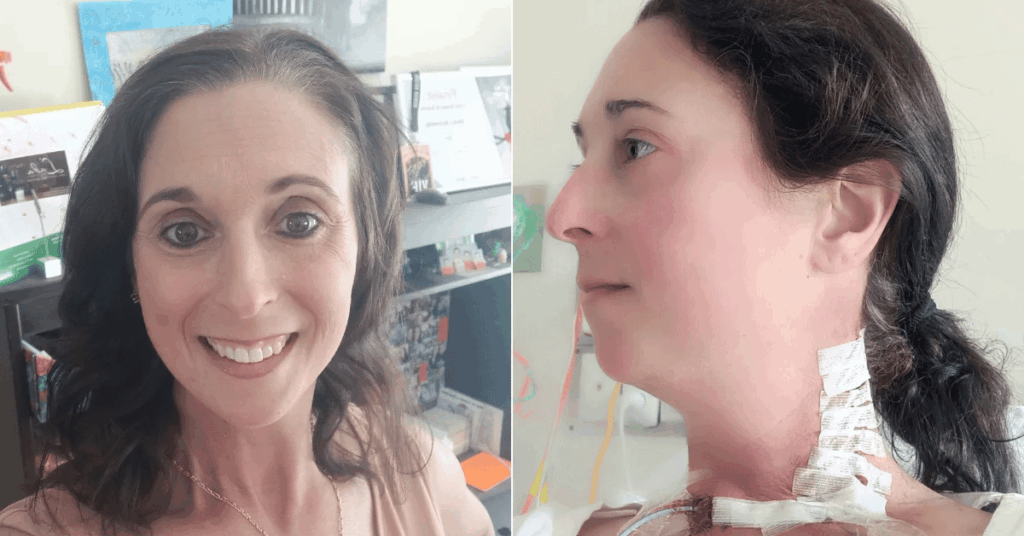
Deborah Terkely, a diligent business owner and mother of two, has always prioritized her health. Despite the demands of running a family business and raising two young sons, she never neglected her annual health check-ups, which included blood tests, breast exams, thyroid checks, and iron levels. Her vigilance, however, was put to the test in 2022 when she experienced a debilitating migraine just before her 40th birthday.
“I’ve never experienced one before,” Deborah recalled. “It was not normal.” The pain was so intense that she found herself retreating to a dark bedroom, seeking solace from the “unbearable” head and neck pain that lingered for days. “Panadol wasn’t doing anything. I was healthy, I didn’t have a cold,” she explained. “I thought horrible things, like it must be a brain or spine tumour.”
After three days of incapacitation, unable to care for her sons, then aged eight and six, Deborah decided to consult her long-time general practitioner. “I’ve had the same doctor for 12 years; she knew me well. I explained my symptoms and said, ‘I want an MRI, to give me the most detailed image’.”
A Shocking Dismissal
Deborah’s request for an MRI was met with a surprising response from her doctor. “She said, ‘Just take some Panadol. You’ll be fine. You’re getting old, Deb’.” At just 39, Deborah was taken aback by the dismissal of her concerns.
The incident highlights a broader issue within the healthcare system, where symptoms are sometimes attributed to aging without thorough investigation. This can lead to serious conditions being overlooked, as was the case with Deborah.
Thyroid Cancer: A Silent Threat
Thyroid cancer, though less common than other cancers, can often present with subtle symptoms that are easily mistaken for less serious conditions. According to the American Cancer Society, the incidence of thyroid cancer has increased significantly over the past few decades, yet it remains one of the most treatable forms of cancer when detected early.
“In many cases, symptoms like fatigue, weight changes, and neck pain are attributed to stress or aging,” said Dr. Emily Carter, an endocrinologist. “This can delay diagnosis and treatment, which is crucial for successful outcomes.”
Deborah’s experience underscores the importance of advocating for one’s health and seeking second opinions when necessary. Her persistence eventually led to a proper diagnosis, revealing that her migraines were a symptom of thyroid cancer.
Lessons Learned and Moving Forward
Deborah’s story serves as a reminder of the importance of listening to one’s body and pushing for answers when something feels amiss. “I knew something wasn’t right,” she said. “I’m grateful I kept pushing for more tests.”
Her experience has also prompted discussions about the need for better training and awareness among healthcare providers to recognize and investigate symptoms that may not fit typical age-related patterns.
“Patients should feel empowered to question and seek further evaluation if they feel their concerns are not being adequately addressed,” Dr. Carter emphasized.
As Deborah navigates her treatment and recovery, she hopes her story will inspire others to advocate for their health and trust their instincts. “If my story can help even one person get an earlier diagnosis, then sharing it is worth it,” she said.
The journey to recovery is ongoing, but Deborah remains optimistic. Her experience has not only strengthened her resolve but also highlighted the critical role of patient advocacy in healthcare.




